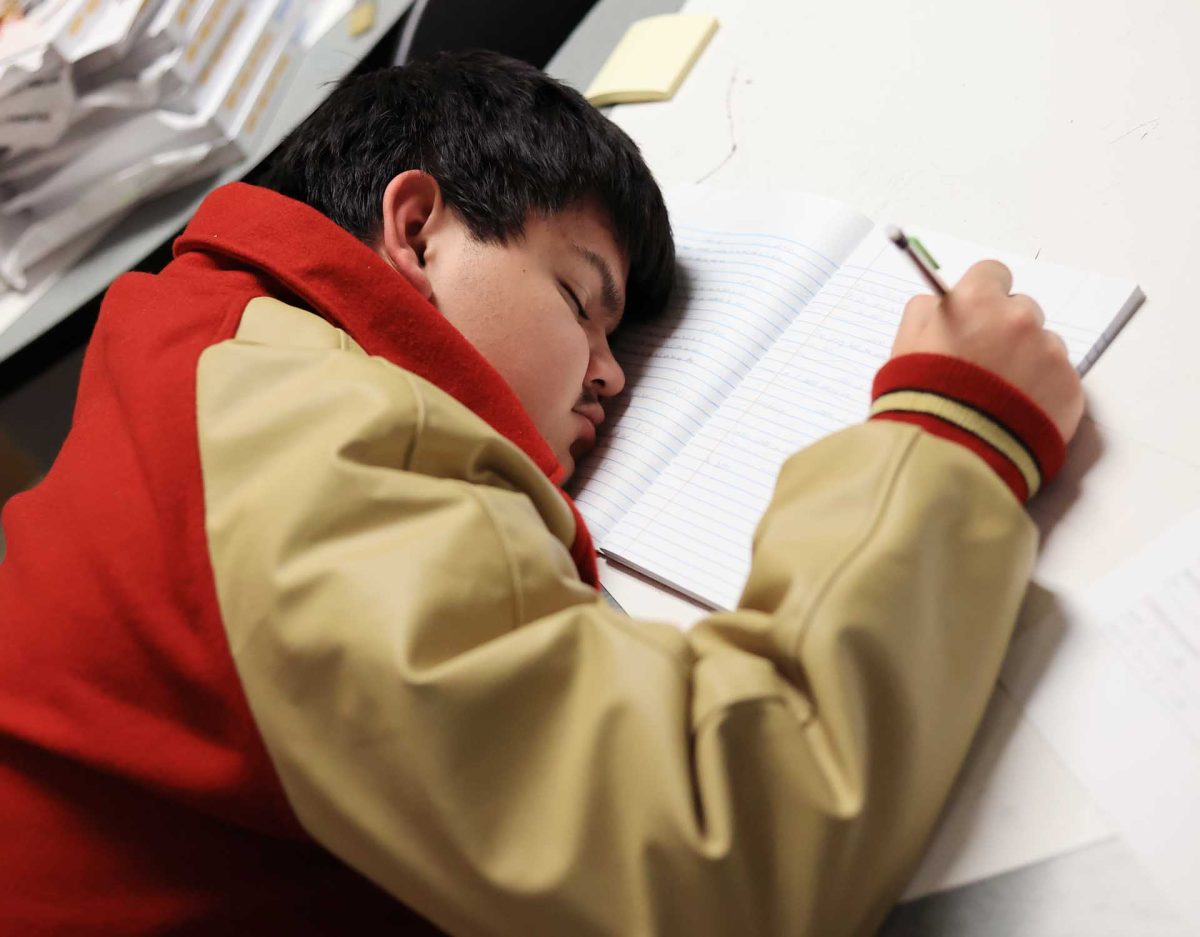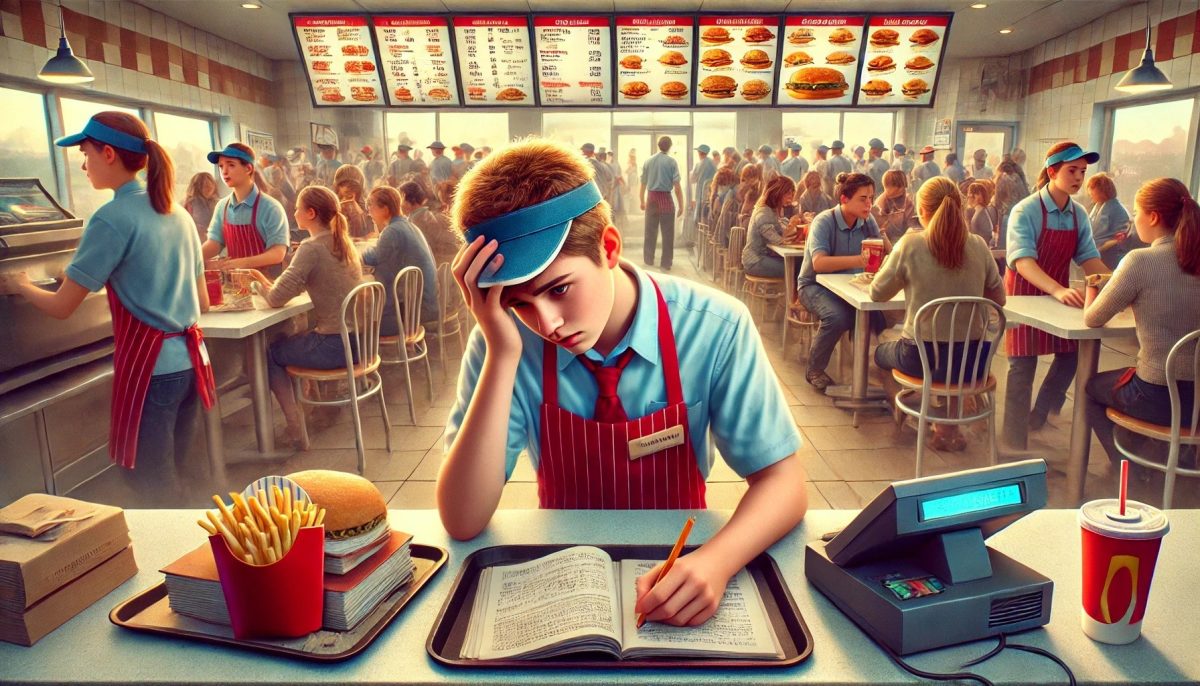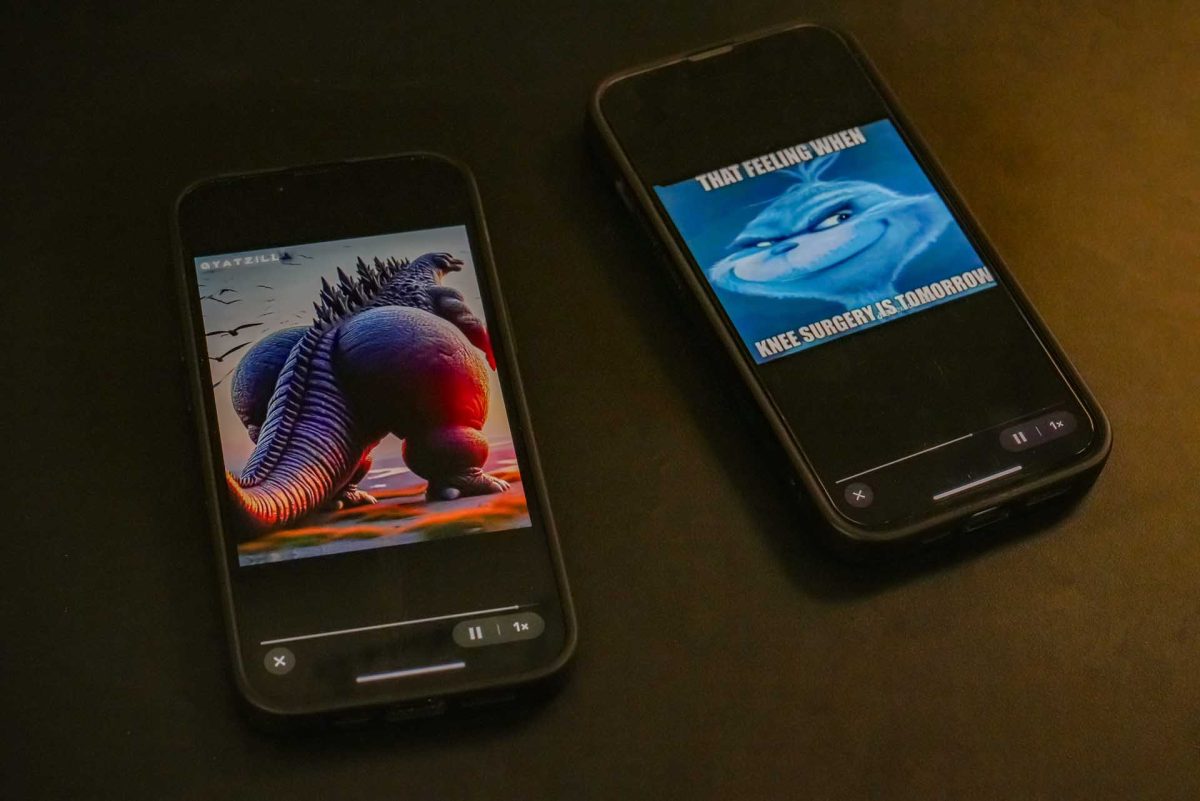Senior Jayden Solis’ day consists of school, going to work and developing his clothing brand; most things come easy to him. The hardest part of his day is making the decision to start.
“Waking up for school at 5 or 6 in the morning, then going to and working for seven classes, then going to work, and not getting home until like 12 in the morning is stressful,” Solis said. “I only get like four hours of sleep. When I do have a day off, I don’t want to do any work.”
Solis’ off days are spent sleeping. He’s constantly stressing, overwhelmed by all the work that keeps piling up. That stress prevents him from doing anything at all, especially when he has work due or late work to make up.
“When I try to do my work, I get so stressed out that I don’t know where to start and I end up falling asleep,” Solis said.
This is called task paralysis. Last year, clinical social worker and therapist Kristin Papa defined the term as, “a state in which individuals find themselves unable to take any action, even when they want to begin or complete a task.”
Decision fatigue, whereby people simply get tired of making decisions, goes hand-in-hand. “Every day, just in our personal lives, we are making a ton of decisions,’ said psychologist Dr. Lisa MacLean. “By the time the average person goes to bed, they’ve made over 35,000 decisions and all of those decisions take time and energy, and certainly can deplete us.”
Roughly 81% and 65% of Caney Creek students experience task paralysis and decision fatigue respectively, according to a survey conducted by Caney Creek’s Student Media. Moreover, the survey found that burnout increases the likelihood of decision fatigue and choice paralysis by 125% and 149% respectively. Inorder to reduce these odds, Caney Creek students must understand what causes task paralysis and decision fatigue and how to handle it.
Understanding task paralysis and decision fatigue
Much can influence how often task paralysis and decision fatigue occurs and the intensity of their effects, such as: how similar the options are, their complexity, and being unsure about what they prefer between options.
Being overloaded with choices hurts motivation to finish tasks and increases anxiety, research suggests. According to a study published in the Journal of Consumer Research, students become frustrated when they have too much homework to do at one time. The survey conducted by Caney Creek’s Student Media finds that for every class that gives homework, students are 27% more likely to experience burnout and 28% more likely to feel overwhelmed. These feelings can keep them from doing any of it, decreasing their ability to learn crucial subjects.
Dr. Denise Pope, senior lecturer at Stanford, found that too much homework can actually do more harm than good. Too much homework (more than two hours worth) led to greater stress, sleep deprivation, headaches, exhaustion, weight loss, stomach problems and less time for friends and family. Student Media’s survey found that more homework increases students’ odds of reporting decision paralysis by 47%; choice paralysis by 27%; and decision fatigue by 37%.
How to Combat Choice Paralysis
Choice paralysis can be detrimental to students’ grades and, more importantly, health. In order to avoid it or reduce its severity, according to Kristin Papa, students should:
Divide big tasks into smaller chunks.
No one can do everything at one time. Break each task into its smallest components. For example, if you have a five-page book report due in three days, separate the daunting and vague task into smaller elements such as researching, constructing a thesis, writing an outline, writing analysis, adding evidence, and revising. Breaking down big projects into smaller tasks may make it easier to start the project.
A study conducted at MIT in 2021 showed that people are more efficient when completing simply defined, straightforward tasks – allowing them to do a few small tasks better as opposed to one big task.
According to Student Media’s survey, choice paralysis can hurt grades as well. For every one-step increase in burnout (e.g. going from agreeing that you feel burned out to strongly agreeing), there was a 29% decrease in grades. For every one-step increase in choice paralysis, there was a 29% decrease in grades. In other words, being too overwhelmed to start your assignments may lower students’ grades.
Focus on the most important.
Senior Christopher Rico, who takes six dual credit and AP classes including AP Chemistry and Physics C, prioritizes his assignments based on importance to balance his workload. “I just think about what I have to do and schedule it all,” he said. “I do everything from easiest to hardest, but important stuff comes first.”
Embrace imperfection.
Perfectionism is a significant contributor to task paralysis. Setting goals to an impossible height can delay a project until the “perfect time” or until you can get the “perfect introduction” to your essay. In other words, perfectionism can prevent someone from starting a task, and then they put it off because they think it won’t be perfect.
According to clinician Andrea Brognano in March, people trying to be perfect the first time often delay starting the task at all.
“Striving for perfect outcomes often causes a delay that cycles where tasks are postponed indefinitely to avoid perceived imperfections,” she says.
Reward yourself.
School is a full time job. Students spend the majority of their day at school, studying, working on homework or have extracurricular activities, jobs or helping at home. This doesn’t even consider students who have to work or have home struggles. Because of this, it’s easy for students to forget to live the best time of their life: childhood.
Burnout is, unfortunately, common among Caney Creek students. 81% of the time, students reported feeling burned out at some point this year. These students are 125% and 149% more likely to experience decision fatigue and task paralysis respectively.









